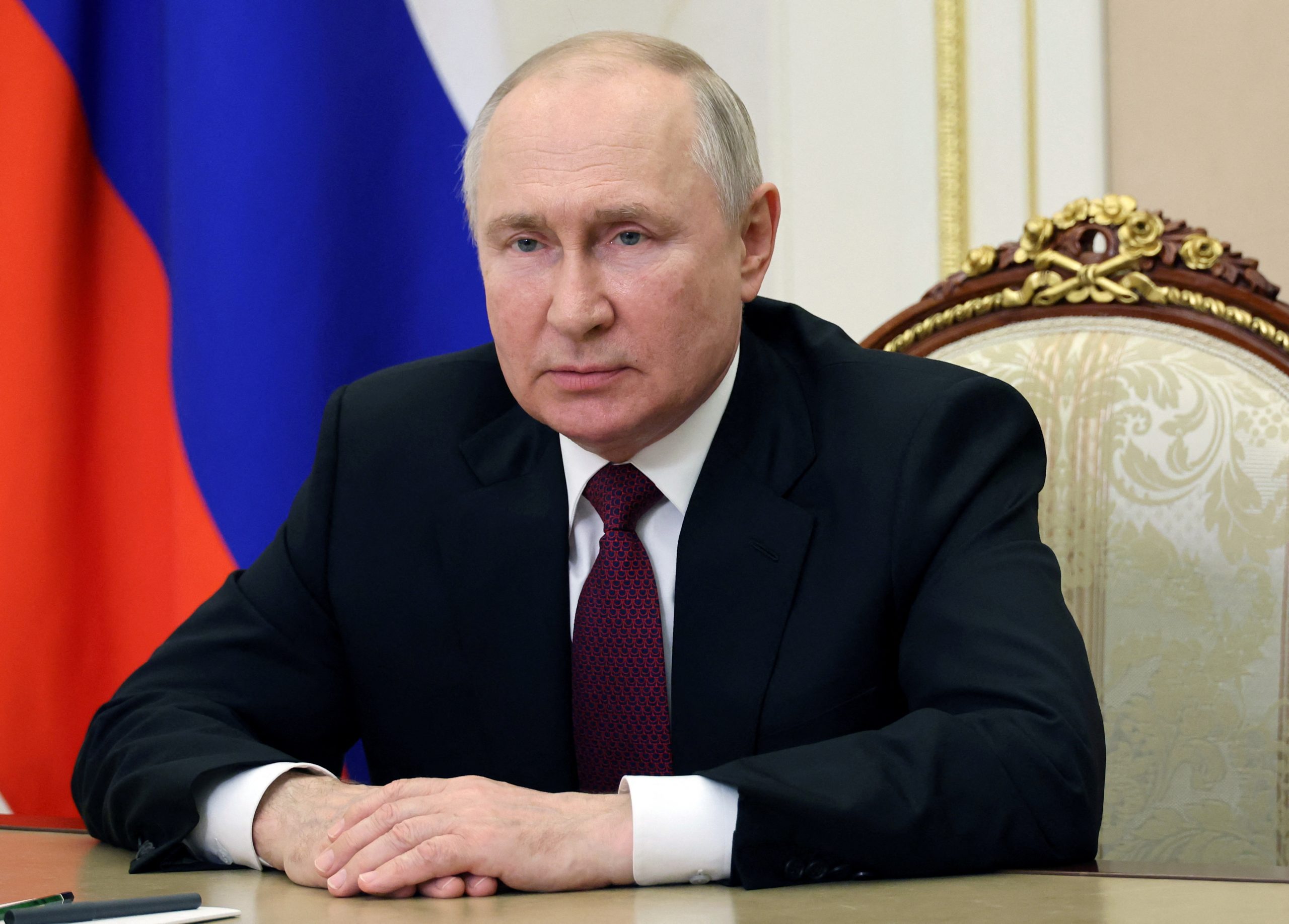
RUSSIAN PRESIDENT, PUTIN TO TRAVEL TO NORTH KOREA FOR ‘FRIENDLY’ VISIT
Russian President Vladimir Putin will travel to North Korea on Tuesday for a “friendly” visit, the Kremlin announced, as the West suspects Pyongyang of supplying Moscow with weapons for its Ukraine offensive.
The visit to the world’s most reclusive state comes as Putin seeks ammunition to continue his military campaign launched in February 2022, which has thrown Moscow into unprecedented global isolation.
It also comes nine months after Putin hosted North Korea’s Kim Jong Un on a rare foreign trip to the Russian Far East, where the pair lavished each other with praise.
“President Vladimir Putin on June 18-19 will go to the North Korean Democratic Republic on a friendly state visit,” the Kremlin said in a statement.
Moscow said Putin will then travel to Vietnam.
Western countries, South Korea and Kyiv have accused Pyongyang of sending weapons to Moscow for use in Ukraine, in violation of UN sanctions on North Korea.
Washington and Seoul say Russia has in return provided Pyongyang with technical help for its satellite program and sent aid to the food-strapped state.
Putin has scaled down trips abroad since launching the Ukraine offensive, but has paid some high-profile visits to Moscow’s few key allies such as China.
Pyongyang rarely hosts foreign guests, isolated diplomatically and having shut itself off even more since the Covid pandemic.
Russia and North Korea, which share a small land border, have historic links since the Soviet Union helped found the tiny state after the Korean War in the 1950s.
Since the fall of the USSR, Russia was one of the few countries to have working relations with Pyongyang.
It will be Putin’s second visit to the country in his time in power, after a trip 24 years ago, shortly after becoming president, to meet Kim Jung Un’s father Kim Jong Il.
Back then, Putin was a frequent traveller, regularly touring the United States and Europe.
Now Russia finds itself under heavy international sanctions and the Kremlin leader is a persona non grata in most of the Western world, officially wanted by the International Criminal Court (ICC).
Kim said last week that ties with Russia had “developed into an unbreakable relationship of comrades-in-arms”.
When the leaders saw each other in September, Putin said he saw “possibilities” for military cooperation with North Korea, while Kim wished the Kremlin chief “victory” in Ukraine.
They symbolically gifted each other rifles and the Kremlin promised that Putin would visit in turn.
A string of Russian officials, including Moscow’s spy chief, have since visited North Korea in preparation for the visit.
In March, Russia also used its UN Security Council veto to effectively end UN monitoring of North Korean sanctions violations, a move seen as a victory for Pyongyang.
Both Russia and North Korea have denied that Pyongyang’s weapons are being used in Ukraine.
Kim’s powerful sister, Kim Yo Jon, accused Seoul and Washington last month of “misleading public opinion” on the issue.
Ukraine, however, has reported finding North Korean shells on the battlefield.
In May, South Korea said its northern rival fired multiple short-range ballistic missiles, with some experts saying they could be tests for weapons destined for use against Ukraine.
As the Kremlin and Pyongyang have publicly deepened their ties, Moscow’s relationship with South Korea — a Ukraine backer — has been hugely strained.
Seoul is a major weapons exporter to Kyiv. Its President Yoon Suk Yeol last month promised to maintain its support in a phone call with Ukraine’s President Volodymyr Zelensky.
South Korea last month announced separate sanctions on Russian and North Korean individuals and companies allegedly trading military supplies.
For its part, Russia earlier this year detained a South Korean man, Baek Won-soon, on spy charges. He is believed to be the first South Korean detained on espionage charges in Russia for decades.
According to media reports, he may have been a missionary helping North Korean workers in Russia escape the country.
AFP
